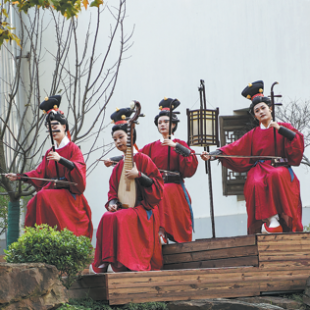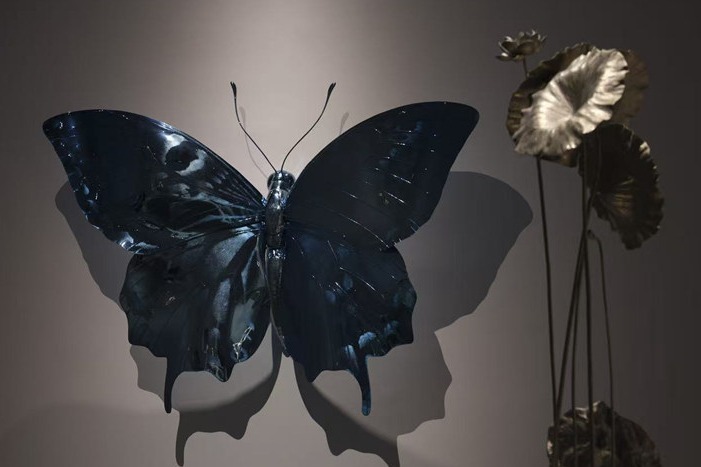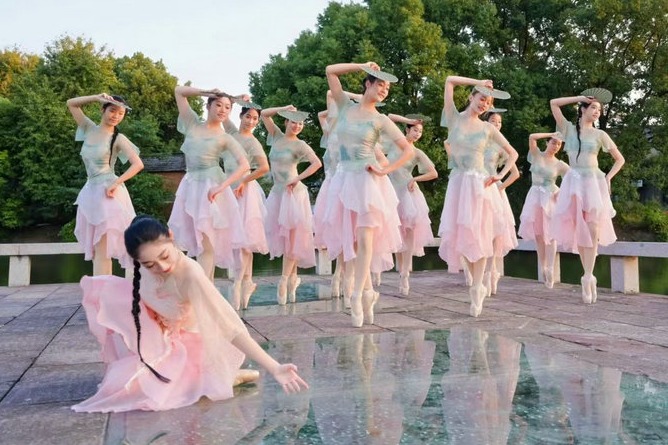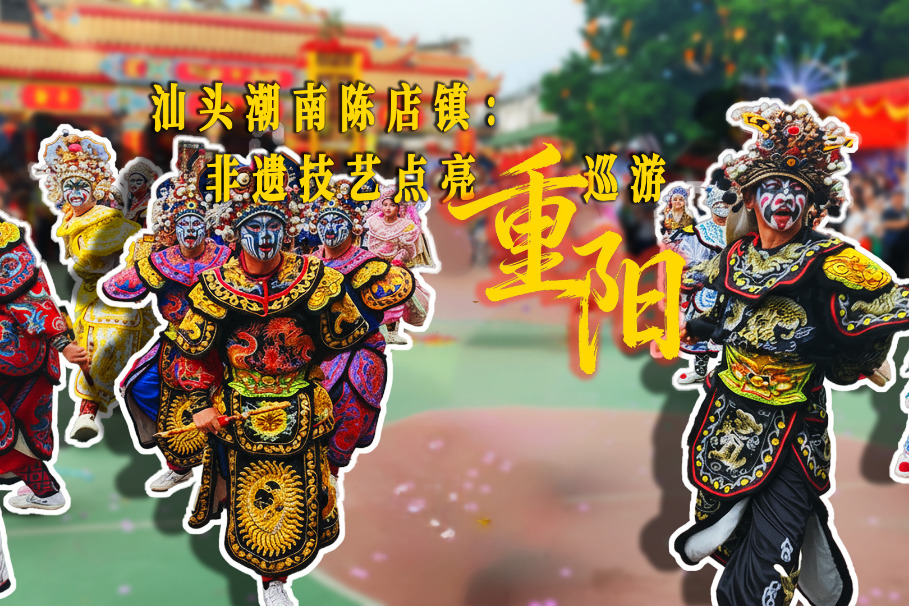Where music flows like water
UNESCO honors Wuxi for its living heritage, where melodies echo through classrooms, canals and concert halls


Every city has its rhythm — Wuxi's happens to be a song.
On Oct 31, UNESCO officially announced that Wuxi, Jiangsu province, had joined the Creative Cities Network, becoming China's first "City of Music". Established in 2004, the UNESCO Creative Cities Network fosters global collaboration and sustainable development in the cultural and creative industries. Prior to Wuxi's recognition, 75 cities worldwide had been designated as Cities of Music, but none were from China.
Why Wuxi? To understand the answer, one must walk through the city's quiet lanes, past canals and gardens, and listen carefully to its sounds — for hidden within them are the countless bonds between musicians and their hometown.
Wuxi has never lacked musical talent. Locals tell stories of A Bing (1893-1950) and how he composed the haunting erhu (a two-stringed fiddle) piece The Moon Reflected on the Second Spring, and they speak with pride of the Liu Tianhua brothers, each a master in his own field. And if visitors are lucky enough to meet longtime residents like Xu Darong, they may even hear how he once lived next door to Wang Xin, the composer of Ode to the Motherland.
Wang's hometown, the ancient town of Dangkou, still preserves the graceful scenery of white walls and black tiles reflected in green rivers. There, 65-year-old Xu leads a folk ensemble of more than 30 retired music lovers who rehearse every week. Though he once worked as a painter, Xu has been devoted to music since childhood, mastering instruments through self-study from the erhu to the suona (a double-reed horn), with the bamboo flute as his favorite.

As a child in Dangkou, weddings were his first encounter with music. During tanghui (communal celebration) ceremonies, wedding bands paraded through the streets, their instruments adorned with bright red flowers, performing the lilting, gentle melodies of Wuxi's Jiangnan "silk-and-bamboo" (raw materials for the instruments) tradition. "It is Wuxi's landscapes that nourish this musical atmosphere," Xu reflects. "When we play Taihu Mei (The Beauty of Taihu Lake) or Wuxi Jing (Scenery of Wuxi), we are singing our love for our hometown."
"Music performance in Wuxi is deeply rooted among the people," says Wang Mengna, a 40-year-old erhu player and member of the Zhou Shaomei Chinese Music Society, a folk ensemble founded to honor the Wuxi music educator Zhou Shaomei. Many of the older musicians in the ensemble play the erhu without sheet music — "completely free and spontaneous" — yet, they are proficient in multiple instruments and even compose their own pieces. For classically trained musicians like Wang, this approach was initially surprising.
Originally from Shaanxi province, where the erhu follows the bold, dramatic style of local opera, Wang Mengna found Wuxi's erhu to be strikingly different — "gentle".This gentleness has influenced her deeply. Having moved to Wuxi at 19, she has now lived there longer than in her birthplace. The piece she cherishes most is Zhou Shaomei's Yu Shun Xun Feng Qu (literally, "Yu Shun's Song of the Warm Wind from the South"). "It carries a sense of calm acceptance toward life," she says.
Known as "a land of Chinese folk music", Wuxi today has over 500 folk music ensembles that bring melodies to concert halls, parks and neighborhood stages. From amateur players to professional musicians, they keep the city alive with the sounds of the erhu, pipa (a four-stringed Chinese lute), and bamboo flute. This thriving scene rests on a strong foundation of music education.
At Meicun Experimental Primary School, erhu classes have been offered for nearly 30 years. The school also hosts an erhu club named Taihu Qinyun, which has close to 300 members. "Almost every child here gets the chance to learn the erhu," says teacher Fan Yiyun. Students who start in first grade and practice through extracurricular activities can reach a professional level by graduation.

For these students, however, the erhu is not just about passing exams. It is also a way for them to discover another side of themselves through music. Fan tells of a quiet fifth-grade student who seldom speaks, yet his favorite moments are in erhu class. "The erhu has helped him open up his inner world," Fan says.
To inspire new generations, the school's classes are playful and imaginative — teachers use the erhu to "call roll" by mimicking voices and even adapt melodies from animated films like Ne Zha.
Meicun is one of 70 schools in Wuxi offering erhu programs. Across the city, all 480 primary and secondary schools now have comprehensive music courses, including instrument lessons and Wuxi Opera. Annual events such as the "Little Skylark" student arts festival, now in its 44th year, provide platforms for young people to express their passion for music.
What echoes in Wuxi today come not only from traditional instruments and ancient songs, but also from a new generation of musicians. Miao Wenbo, 33, grew up in Wuxi without learning traditional Chinese instruments. Instead, he started playing the violin at the age of 10, encouraged by his grandmother and mother, who loved listening to symphonies on the radio. Now, he serves as associate principal second violinist of the Wuxi Symphony Orchestra, founded in 2023. The orchestra has 75 members, including 12 foreign musicians from eight countries, and has performed internationally on multiple occasions.
During a recent tour in Russia, they played Wuxi Overture and Flying Apsaras, original works rich in Eastern color. Miao recalls that even after the concerts, when walking with his violin case, some audience members applauded them and, in hesitant English, said it was the best performance they had ever seen.
Miao believes music is a form of perception, shaped by subtle influences that develop one's aesthetic sense. When he plays Western pieces depicting natural landscapes, images from his own life often come to mind — like the morning light over Taihu Lake or the autumn colors of Liyuan Garden.

The city's gentle rhythm has also inspired other voices. Folk singer Yan Laoban ("Boss Yan"), who moved from Henan province to Wuxi 12 years ago, wrote Hello Wuxi after first seeing the water town's stone bridges and flowing canals. "It felt like walking into a painting," he says. Since then, he has written nearly 30 songs during his time in Wuxi. "Life here moves slowly; it doesn't make you anxious."
Hello Wuxi is preserved in Sound Hall, a creative music space set in a century-old house converted into a vibrant cultural venue. Visitors can listen to recordings of this Wuxi-themed work, and even the everyday sounds of the city. Each week, small live performances blend traditional and modern, local and international influences — enriching both musicians and audiences.
Wuxi is rich in music and stories waiting to be heard. The reasons Wuxi became a City of Music are both ancient and contemporary. The city's archaeological finds include musical instruments dating back more than 2,000 years; its craftsmen lead the world in the production of erhu, harmonicas, and harps; and one masterpiece alone — The Moon Reflected on the Second Spring — continues to earn worldwide acclaim for its timeless beauty.
UNESCO's evaluation for the title covers diverse dimensions: musical tradition, ecology, education, industry, international exchange, and contribution to the network's future. Wuxi spent two years preparing its application. "We conducted a comprehensive study of Wuxi's musical life," says Zhu Ying, a Wuxi official, who led the city's application. "We hope this recognition brings pride to our citizens and encourages more people to take part in musical activities."
For Wuxi, music has long been part of its identity — a reflection of its landscape and spirit. Yet, what truly makes it a City of Music are the people who live and breathe music every day. Wuxi has offered them a fertile ground — a place where they can love, inherit, and create music.
Bai Shuhao contributed to this story.





































